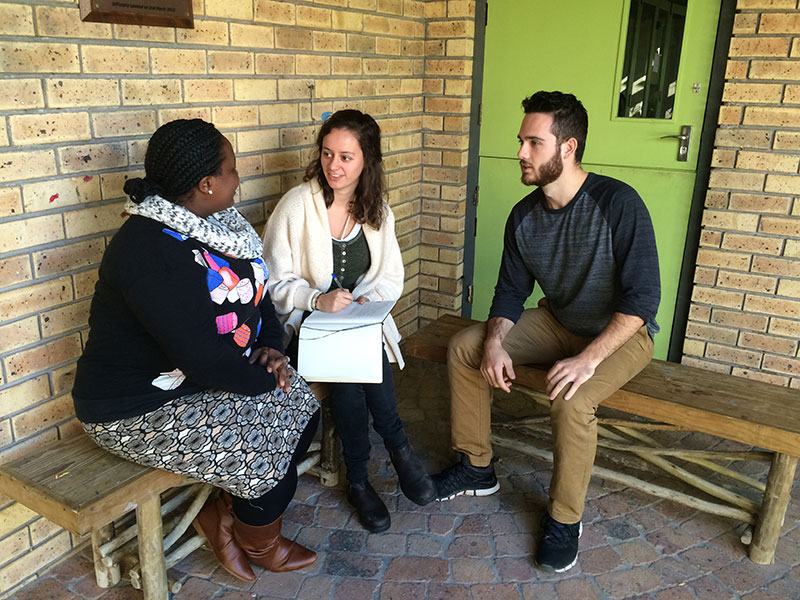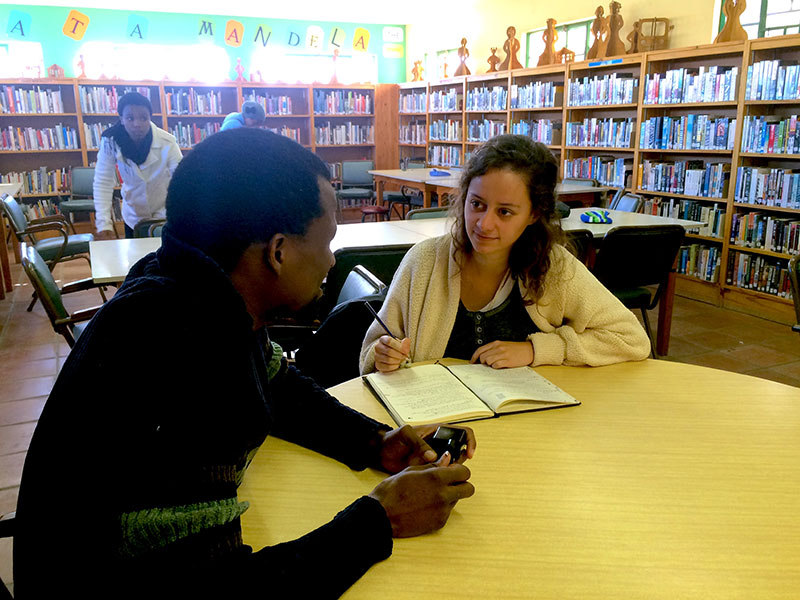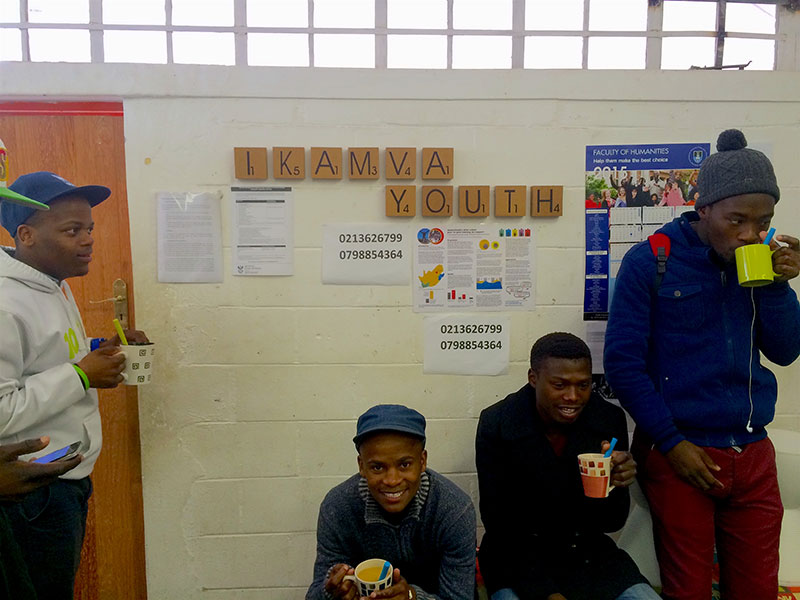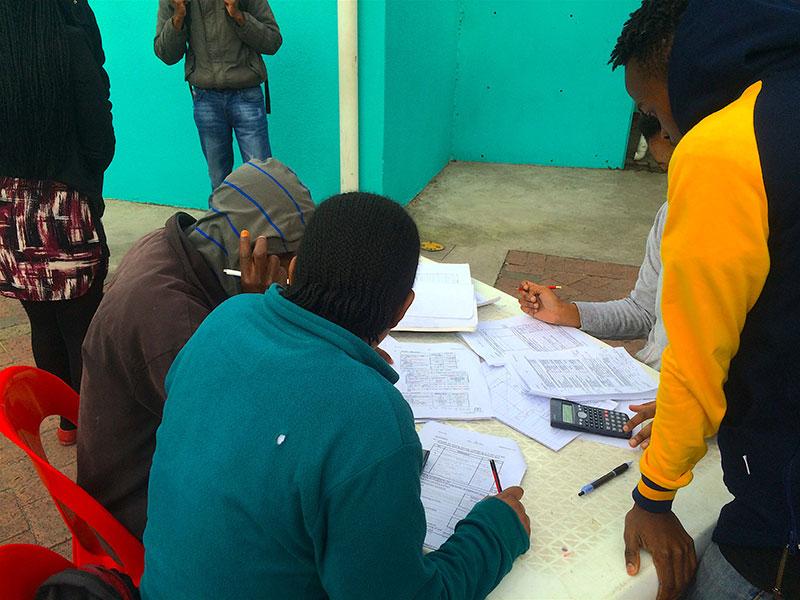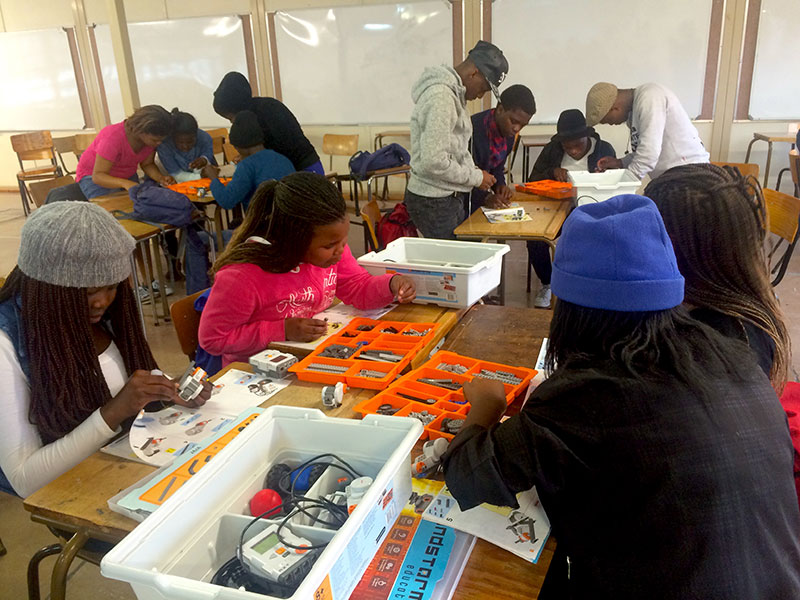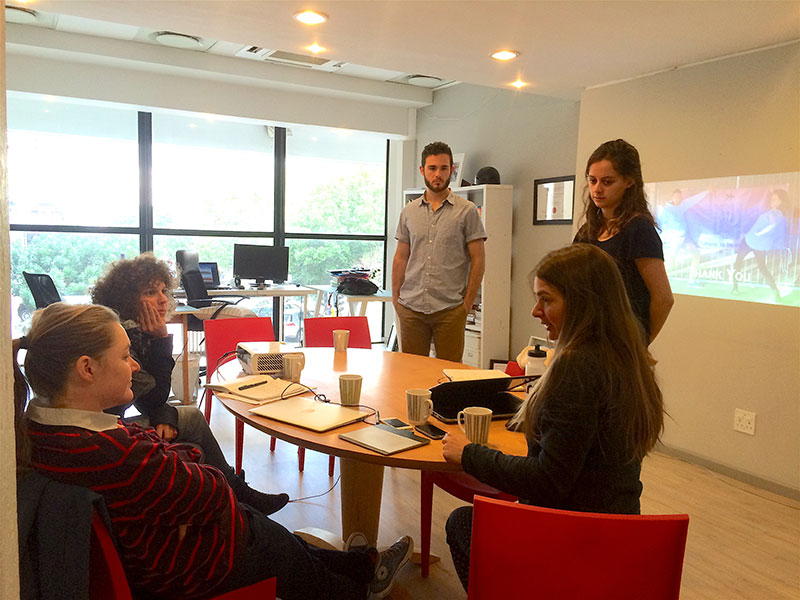Ikamva Youth
The Host Enterprise and its Mission
IkamvaYouth enables disadvantaged South African youth to pull themselves and each other out of poverty through education. It is a by-youth-for-youth organization that equips its students with the skills, resources, and support necessary to accessing tertiary education and employment opportunities following secondary school graduation. Learners in Grades 8-12 from schools around the country participate in IkamvaYouth’s after-school tutoring, career guidance, and mentoring, all of which are provided by volunteers. IkamvaYouth drives community change by empowering its students through a culture of cooperation and responsibility.
The Challenge
IkamvaYouth is able to offer extensive tutoring services free of charge due to the hard work of its committed volunteer tutors. However, as more students flock to join the program and IkamvaYouth grows, it faces challenges in maintaining enough tutors to meet students’ needs. The organization requested an assessment of potential improvements to its tutor retention strategies including recruitment, engagement, and internal communication protocols.
Field Research Analysis
Written to address the needs of IkamvaYouth national staff, this document includes analyses of the results of the survey, interviews, and group discussions. It can be leveraged to better understand tutor identities, motivations, and needs. This valuable information can be used to expand tutor recruitment, engagement, and retention.
Orientation Pack
Written to address the needs of incoming IkamvaYouth tutors, this document provides the tutors with a condensed, standardized hub of introductory information including basic organizational information and helpful tutoring materials. This document can be updated, edited, and distributed as needed across all IkamvaYouth branches in order to integrate new tutors into the organization.
Tutor Engagement Plan
Written to address the needs of branch staff, this document frames the necessity for and means of achieving meaningful, solution-based discussions between tutors and staff. It includes examples of successful discussion protocols and two separate discussion guides, one intended for staff and the other for tutors.
Field Presentation
This slide deck includes the research activities, findings, conclusions, and deliverables that were presented to IkamvaYouth national staff during the field placement.
Research Activities
During our time in South Africa, we traveled between the 4 IkamvaYouth branches in the Western and Eastern Cape provinces, conducting quantitative surveys and qualitative interviews. Of IkamvaYouth’s approximately 300 total tutors living in five of South Africa’s nine provinces, 223 responded to the survey. We also addressed a total of 37 individuals throughout the 30 individual tutor interviews, 4 tutor group discussions, and 5 staff interviews.
The online survey addressed tutors’ demographics, backgrounds, and tutoring experiences. The individual interviews with tutors focused on topics related to the their recruitment, engagement, and retention. The group interviews initiated critical discussion among tutors regarding their experiences with and views of IkamvaYouth.
Our research investigated initiatives that IkamvaYouth can undertake to improve relationships with tutors in order to more effectively impact its student beneficiaries. The survey results enhance IkamvaYouth’s ability to understand tutors’ needs and expand volunteer recruitment activities. The interviews shed light on tutor attitudes towards the organization and provide a clear vision of the improvements tutors want to see for the future of IkamvaYouth. The research activities were focused primarily on areas of critical improvement, exemplifying IkamvaYouth’s commitment to continual improvement and progress.
Key Findings
IkamvaYouth makes a difference in the lives of its beneficiaries by providing self-empowerment through education and tight-knit community involvement. However, IkamvaYouth faces poor retention rates among its volunteer tutors. Tutors and staff identified three key contributions to this complex issue:
Improving tutor integration will pay dividends. Many tutors are initially unprepared for the realities of working with students from dysfunctional schools, often having no prior experience in tutoring or mentoring. Some tutors also lack a basic understanding of IkamvaYouth’s mission, programs, core values, and structure. Tutors need access to standardized IkamvaYouth orientation materials to more effectively integrate into and contribute to the organization’s culture and community.
Growth has outpaced communication protocols. IkamvaYouth works tirelessly to maintain a democratic organization and value the opinions of all its members as it grows. Yet, tutors who voice suggestions for improvement in formal meetings often receive little feedback on their propositions. As a result, these tutors become disillusioned and stop contributing their vision for the future of IkamvaYouth.
Discussions need to focus on solutions. Unstructured discussions between staff and tutors tend to elicit more complaints than solutions. Staff feel overwhelmed by tutor complaints and lack the time, resources, and energy to improve the state of communications, which in some cases have become strained and impersonal.

Team
2015
Social Enterprise:
Ikamva Youth
Web Design Engineering
Bioengineering
Communication
Deliverables
Field Research Analysis
Written to address the needs of IkamvaYouth national staff, this document includes analyses of the results of the survey, interviews, and group discussions. It can be leveraged to better understand tutor identities, motivations, and needs. This valuable information can be used to expand tutor recruitment, engagement, and retention.
Orientation Pack
Written to address the needs of incoming IkamvaYouth tutors, this document provides the tutors with a condensed, standardized hub of introductory information including basic organizational information and helpful tutoring materials. This document can be updated, edited, and distributed as needed across all IkamvaYouth branches in order to integrate new tutors into the organization.
Tutor Engagement Plan
Written to address the needs of branch staff, this document frames the necessity for and means of achieving meaningful, solution-based discussions between tutors and staff. It includes examples of successful discussion protocols and two separate discussion guides, one intended for staff and the other for tutors.
Field Presentation
This slide deck includes the research activities, findings, conclusions, and deliverables that were presented to IkamvaYouth national staff during the field placement.

